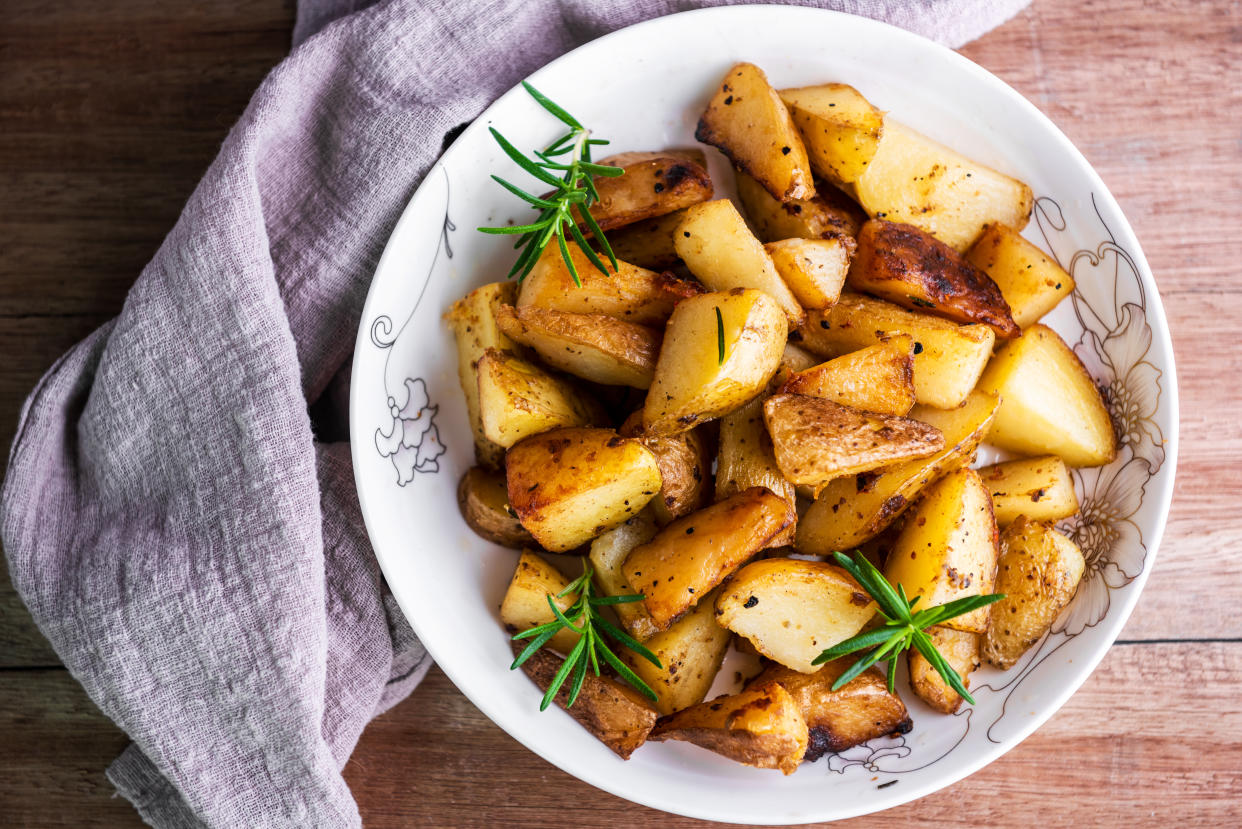Potatoes are good for you — but they get a bad rap. Why spuds are healthier than you think.

The humble potato is an American favorite, topping the charts as the most consumed vegetable in the U.S. From baked potatoes to potato salad, spuds are featured in so many delicious recipes but are rarely considered a healthy choice. While some potato dishes are better for you than others, adding a potato to your meal isn’t necessarily an unhealthy choice. Here’s what people often get wrong about potatoes.
Potatoes aren’t 'empty calories'
Potatoes are surprisingly nutrient-dense. A small, skin-on potato is an excellent source of vitamin C and a good source of vitamin B6, important nutrients for skin health, immune function, energy metabolism and more. Potatoes also provide more potassium — a widely underconsumed nutrient that helps regulate blood pressure and offset the effects of sodium — than bananas.
Potatoes even provide 3 grams of protein per serving. They also contain fiber; a small potato with the skin on has 2 grams of fiber per serving. Most people don’t consume enough fiber, which has several health benefits, including cholesterol control, satiety, digestive health and blood sugar regulation.
Potatoes can help with weight loss
There is no strong evidence that eating potatoes raises your risk of obesity, although how you prepare them matters. Research suggests that potatoes, naturally low in calories, are more satiating than other popular carbohydrate choices such as rice and pasta. Over time, swapping rice or pasta for potatoes may help regulate appetite, reduce calorie intake and contribute to weight loss.
Not all potatoes have a high glycemic index
The glycemic index (GI) is a measure of blood sugar response to a standard portion of food. High GI foods have a GI score >70 and are rapidly absorbed into the bloodstream, while low GI foods have a GI score <55 and provide more sustained energy. The GI value for potatoes varies depending on the variety and how it’s prepared, but there are several varieties that are low on the glycemic index, including Nicola, Marfona, Charlotte and Estima, along with potatoes that have been cooked and then cooled, which helps lower their GI.
People with type 2 diabetes don't need to cut out potatoes entirely
Research on the link between potatoes and diabetes has been inconclusive. Some recent studies, however, suggest that moderate potato consumption is not associated with increased type 2 diabetes risk. Sweet potatoes in particular are a lower GI option and contain fiber, which can help stabilize blood sugar. Given the carbohydrate content of potatoes, it may make sense for some people with diabetes to stick with a moderate amount of potatoes and other high-carb foods.
The bottom line
Potatoes can be part of a healthy diet and deserve a little more love than they’ve received in the past. They're a good source of nutrition and can be enjoyed in a wide variety of settings — from baked potato loaded with beans, salsa and guacamole to air fryer potato wedges with spices and extra virgin olive oil — without tossing your health goals out the window.
Edwina Clark is a registered dietitian.


